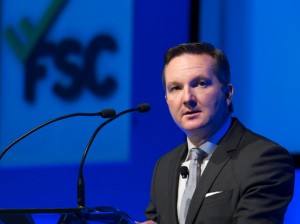Almost all business coaches would agree that the best way to find out what customers want is to ask them. But how do you know if you’re asking the right questions? Beddoes Institute Director, Dr Adam Tucker, shares the secrets to conducting great client surveys…
At a time when building trusted relationships with clients is integral to running a successful advice business, practices must be looking at ways they can collate and assess feedback from clients about areas they are satisfied with and areas where they would like to see improvement. From our experience across many industries, we believe surveys are an important way of reaching out to clients and giving them a voice in how practices are run, and the services they receive.
In the eyes of your clients and your staff, surveying clients immediately makes your practice more client-focused and more committed to improving services. It broadcasts that you have the clients’ best interests at heart, that you genuinely care about their levels of satisfaction with your service, and that you value their loyalty. It also provides a solid platform for change and proof that investment in certain areas will lift the satisfaction levels of current and potential clients.
Before surveying clients, consider whether you need an independent provider. Survey experts have the experience and know-how to ask the questions that will give the most information in the most efficient way. They can also avoid survey traps, such as asking leading questions, and are able to ensure clients have the opportunity to provide you with honest and anonymous feedback. Experts may also be able to report your survey results along with industry benchmarks from similar practices in the market, and help you get the best insights from the survey results. For example, the Beddoes Institute Benchmark for overall client satisfaction is currently at 8.5 on a scale of 0 to 10, with the top practice achieving an overall client satisfaction score of 9.4.
In the eyes of your clients and your staff, surveying clients immediately makes your practice more client-focused and more committed to improving services
Should you decide to survey clients internally, limit the survey to clients who have used your services in the last 12 months. Recent contact means these clients are more likely to accurately recall information about their experience. As the information clients recall decreases over time, including feedback from events three or four years ago may mean results are less reliable and certainly less up to date than what is needed.
The survey needs to ask the right questions and contain a good mix of both qualitative and quantitative questions. Qualitative questions are open-ended, such as: “What are your best experiences at this practice?” and “What areas can be improved?”. Quantitative questions are questions that are rated on a scale and scored.
When building a survey, the number of questions asked should be compared to the length of time a survey takes to complete. Too few questions and the survey won’t give the answers you need; too many and clients may not complete the whole survey.
Once the survey has been completed, allocate time to study the results. We find workshops are useful to discuss a plan or ‘where to from here’. It’s important to take the insights gained from the survey and actually make the changes to the practice which will improve feedback on the next survey. Using the knowledge gained from this process is crucial to providing the service that clients want.
Finally, having completed a client survey and made plans to improve your practice, book a date to repeat the survey so that you can monitor the effect of the changes you’ll make.
Use this questionnaire to make a plan for your next survey.

Connecting with Clients delivers insights into how consumers interact with advice professionals, and what the best advice practices are doing to set themselves apart. The series is based on the Association of Financial Advisers (AFA) industry white paper research, ‘Connecting with Clients’, conducted by Beddoes Institute and sponsored by Zurich, which measured the most preferred communication channels across more than 500 financial advice clients. To sign-up to receive best practice tips on how to implement each of the communication channels covered in the white paper, visit: connectingwithclients.com.au
Dr Adam Tucker is Director of the Beddoes Institute, which specialises in delivering research and consulting services to the financial services sector.

















